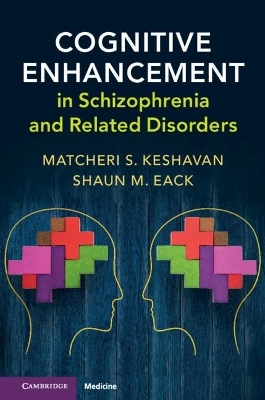
Cognitive Enhancement in Schizophrenia and Related Disorders
Cambridge University Press (Verlag)
9781107194786 (ISBN)
Schizophrenia and related psychiatric disorders can be highly disabling. Deficits in cognition, involving skills such as attention, problem solving and social understanding are core symptoms of many psychiatric disorders, which greatly impact the quality of life of patients. New research demonstrates the evidence for cognitive enhancement therapies, capable of relieving these deficits. This book explores the evidence for cognitive enhancement therapies and their mode of action, making recommendations for individualized implementation strategies. The topics covered include computer-based exercises, psychotherapeutic group activities, and pharmacological interventions. This book is designed to serve the needs of practicing clinicians, researchers, and mental health students. It is packed full of illustrations and case vignettes from the author's own practice and includes an up-to-date bibliography of the major works in this field.
Matcheri Keshavan is Stanley Cobb Professor of Psychiatry at the Harvard Medical School. His research is closely focussed on understanding the biological basis of mental illnesses like schizophrenia and early intervention using medical and psychosocial approaches. Shaun Eack is Professor of Social Work and Psychiatry at the University of Pittsburgh and has been leading studies of psychosocial interventions for people living with severe mental illness for over a decade.
Part I. Basic Principles of Cognitive Enhancement: 1. Cognition and its impairment in schizophrenia and related psychotic disorders; 2. The brain that builds itself: the phenomenon of neuroplasticity; 3. Cognitive enhancement: historical overview and principles; Part II. Approaches to Cognitive Enhancement: 4. Getting ready for cognitive enhancement: patient engagement, stabilization and integration; 5. Computer-based approaches to cognitive enhancement; 6. Individual and group approaches to cognitive enhancement; 7. Psychopharmacological approaches, cognitive enhancement, and brain stimulation; Part III. Personalizing and Optimizing Cognitive Enhancement: 8. Who responds best? Predictors and moderators of cognitive enhancement; 9. Choosing the right treatment for the right patient; 10. Approaches to assessment and monitoring treatment response; 11. Research in cognitive enhancement: challenges and opportunities.
| Erscheinungsdatum | 22.03.2019 |
|---|---|
| Zusatzinfo | Worked examples or Exercises; 28 Halftones, black and white; 16 Line drawings, black and white |
| Verlagsort | Cambridge |
| Sprache | englisch |
| Maße | 159 x 240 mm |
| Gewicht | 490 g |
| Themenwelt | Geisteswissenschaften ► Psychologie ► Klinische Psychologie |
| Medizin / Pharmazie ► Medizinische Fachgebiete ► Psychiatrie / Psychotherapie | |
| ISBN-13 | 9781107194786 / 9781107194786 |
| Zustand | Neuware |
| Informationen gemäß Produktsicherheitsverordnung (GPSR) | |
| Haben Sie eine Frage zum Produkt? |
aus dem Bereich


